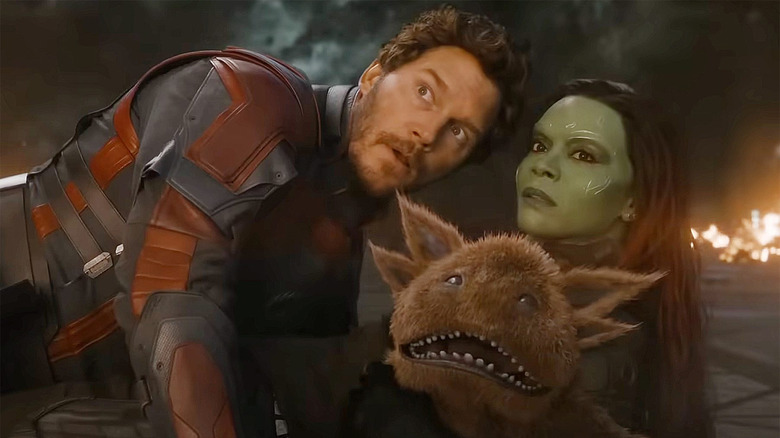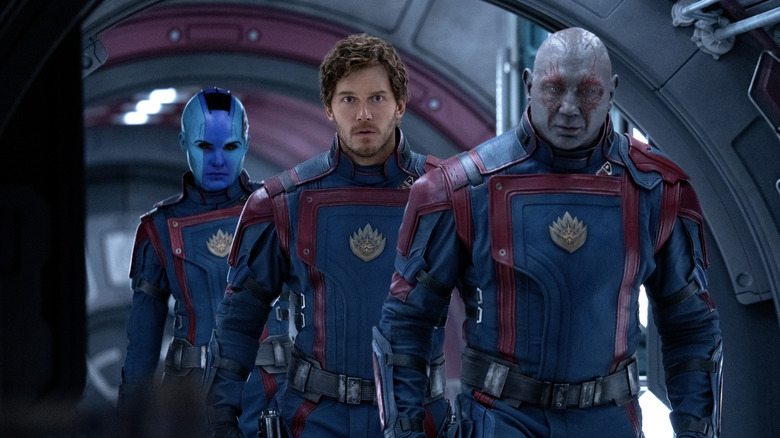James Gunn Doesn't Think Killing Characters Is Necessary, And It's The Stakes That Truly Matter
Heavy spoilers for "Guardians of the Galaxy Vol. 3" follow.
"Guardians of the Galaxy Vol. 3" is a satisfying, funny, and rather emotional movie that gives us something rare in the Marvel Cinematic Universe: an ending. This movie provides a definite end to this version of the team, a great backstory for Rocket that was years in the making, and the closest we've got to a "We3" adaptation (fair warning, though, there's a lot of animal abuse).
Going into the release of the film, the big question on most people's minds was who would live and who would die. It didn't help that James Gunn made a big deal about this being his last "Guardians" movie, and outright said some characters would die, while some actors like Dave Bautista and Zoe Saldaña stated they were done with the characters after this film. The trailers even teased dramatic moments, like Nebula carrying a motionless Peter.
But the surprise ending to "Guardians of the Galaxy Vol. 3" was that there was no twist, that no one actually died.
Speaking with Collider, James Gunn talked about killing characters, and his approach to it. It may surprise some viewers accustomed to Gunn obliterating his cast like he was the creator of "Gundam" that the filmmaker doesn't automatically think about it. "I don't think that killing characters is necessary," he said, though he admitted to being willing to do it. "People know I'm a guy who's willing to go there, and I think that the movies have to feel like that."
The end of the road
According to Gunn, what's important is that we feel the stakes rather than actually see characters die, to imagine that they could, even if they don't. This is a problem in many Marvel movies. Because we know the heroes don't die (unless it's something like "Endgame"), the movies pivot to showing us lots of destruction of civilians to replace the lack of dangers for the heroes. This, in turn, forces the story to ignore those deaths for the sake of moving to the next story beat. It doesn't matter that the High Evolutionary killed a whole planet because at least it wasn't a Guardian.
Granted, "Guardians of the Galaxy Vol. 3" did have stakes, and it felt like the characters could genuinely die, not side characters for the main heroes. That is the triumph of the film, that it did not necessarily need to kill anyone just to create a sense of gravitas. The fact we thought they would kill Adam Warlock mere minutes after introducing him was enough.
And yet, the stakes of the movie were not isolated. As mentioned, a big part of the marketing focused on posing the question of who would make it out alive, so there was already an idea that when a character is in danger it's because this is their exit — not necessarily due to actual stakes, but because audiences already anticipated someone to die.
Whether these stakes were real or not, Gunn is right that the feeling of a character being killable is more important than them actually dying. Even something like the Battle of Winterfell in "Game of Thrones" felt disappointing not only because no main character died, but because they never really felt in danger.
"Guardians of the Galaxy Vol. 3" is now in theaters.

